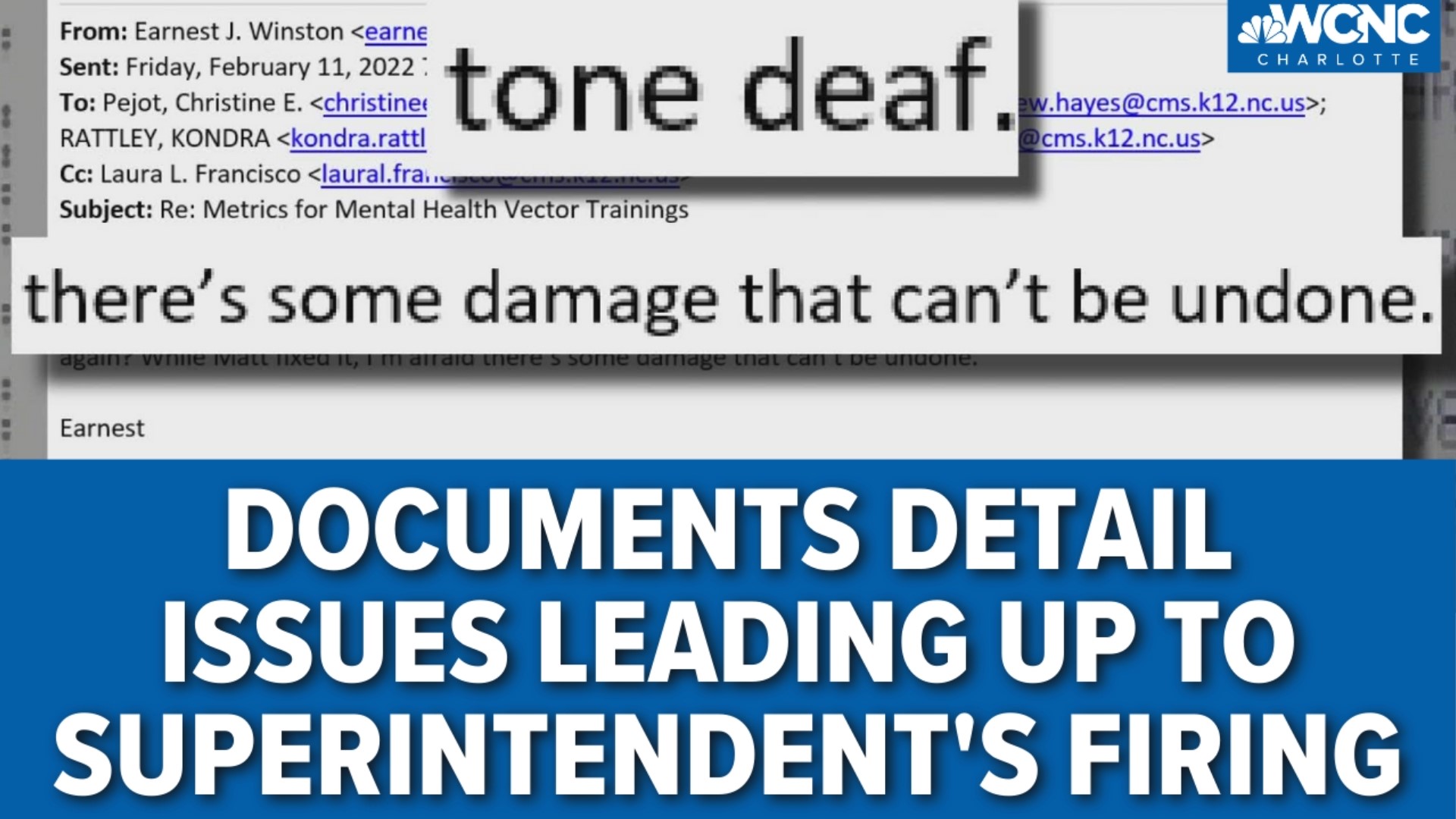CHARLOTTE, N.C. — Documents obtained and reviewed by WCNC Charlotte revealed growing political and performance tensions over previous months inside Charlotte-Mecklenburg Schools.
Two months before a 7-3 vote fired Earnest Winston as CMS superintendent, Charlotte-Mecklenburg Schools Board of Education Chairperson Dashew received a leadership presentation compiled by district leaders and principals that outlined, among other things, three guiding principles related to the superintendent's position moving forward.
According to emails obtained by WCNC Charlotte, the presentation lists "Three Guardrails" connected to the district's top position:
- The superintendent will not allow inequitable treatment of students.
- The superintendent will not deprive students of access to course offerings that are rich, diverse, and rigorous.
- The superintendent will not neglect students' social/emotional health, wellness and development
On that same day in February, Dashew emailed Winston and Deputy Superintendent of Academics Matthew Hayes voicing support in the face of criticism linked to controversial district-approved suggested reading at some high schools.
"I support you in making decisions based on your professional expertise regarding what's best for students, in pursuit of the goals in our strategic plan," Dashew said in part.
Emails show those words came just days after outraged parents voiced disappointment that teachers suggested their children read "The Girl Who Fell From The Sky," a book with graphic undertones.
"Silence from our district leadership beyond a superficial non-answer that doesn't address the TEXT in question is deafening," Board Member Sean Strain, the most vocal critic over email on the topic, wrote.
Board Member Rhonda Cheek, meanwhile, raised questions too.
"How are we including parents in the decision so they have real choice?" she asked. "Parents deserve notice. Otherwise they will choose to leave CMS for all of the myriad of options, both free and tuition based."
Whether it was the district's slow reaction to guns on campuses and delays implementing other key decisions, both cited as concerns in a newly released independent investigation, or a mistake by a vendor that alerted already tired and overworked teachers about hours of mandatory training near the end of the school year, accountability ultimately falls on the boss.
As Winston put it in a February email addressing the "tone deaf" failure of the training communication, "I'm afraid there's some damage that can't be undone."
While board members mainly cited the district's need to improve student success and outcomes in the classroom, in addition to Title IX problems and questions over the handling of public records requests, Winston's 2020 performance evaluation, released Tuesday, shows communication has remained a longstanding problem as well.
His evaluation shows board members gave the former journalist average scores of around 2 out of 4, considered "developing," when it comes to communication and community relations.
"We are struggling in (communicating) even the simplest things to the public, to our teachers/staff and to our families," an unidentified board member wrote on Winston's evaluation.
"Our entire communication platform is failing," an unidentified board member wrote.
"Superintendent must improve communication with all stakeholders," an unidentified board member wrote.
"Communication with the public seems to continue to be a work in progress," an unidentified board member wrote.
The district's assistant superintendent for communication recently left CMS for a job elsewhere.
Winston will receive two years' worth of his salary as a result of Tuesday's vote.
Former CMS interim superintendent, Hugh Hattabaugh, will return to act as interim superintendent again starting Monday, April 25.
Contact Nate Morabito at nmorabito@wcnc.com and follow him on Facebook, Twitter and Instagram.

